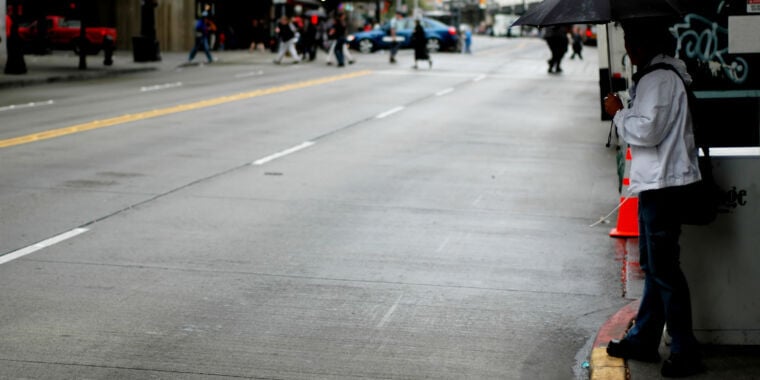Of course, it doesn’t. It’s a myth perpetrated by NIMBYs and politicians who hate bikes.
The fact is, you could have ONE LANE (i.e. one way street) and provided that vehicles are yielding like they should be when emergency vehicles are approaching, there’s no problem. Parked vehicles pose a greater challenge for emergency vehicles, so we can put an end to on-street parking, if that’s the concern.
So, put all the damn roads on a diet and stop the car-brain nonsense.
100%!
The YouTube channel OhTheUrbanity also observed that for Montreal’s REV network (dedicated, physically-separated on-street bike paths), ambulances are often able to use the REV when the adjacent one-way auto lane is impassable due to heavy traffic. This is possible because the REV has 8 ft (2.4 m) lanes as standard, and bicyclists – albeit minorly inconvenienced – can clear from the lane quicker than automobiles can.
It certainly shouldn’t become standard practice for ambulances to drive on bike lanes, but it showcases that dedicating space to smaller, nimble modes of transport has unique upsides. On a fully pedestrianized street, it’s patently obviously that an ambulance will be able to get through unimpeded, barring maybe navigating around bollards.
this is very interesting, but it is relatade to a specific USA place and to a specific change (4 lanes to 3 lanes+cycle paths). unfortunately conclusions can’t be generalized, in this case.



